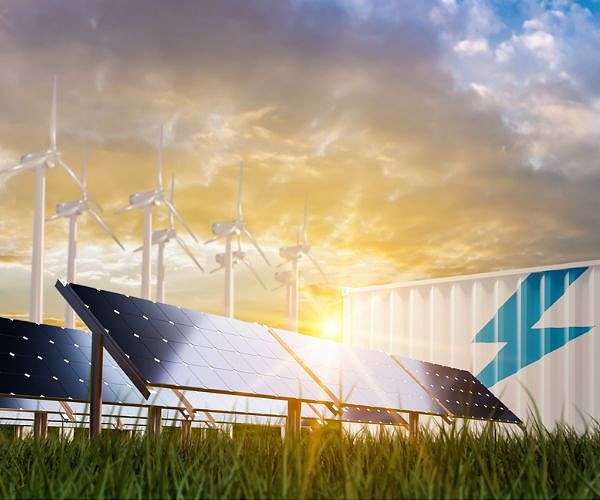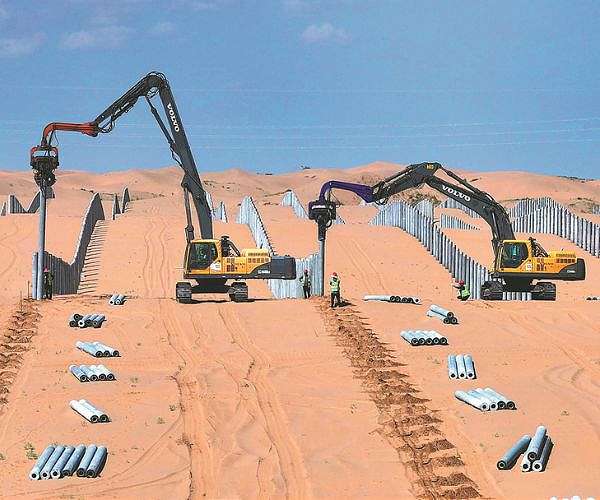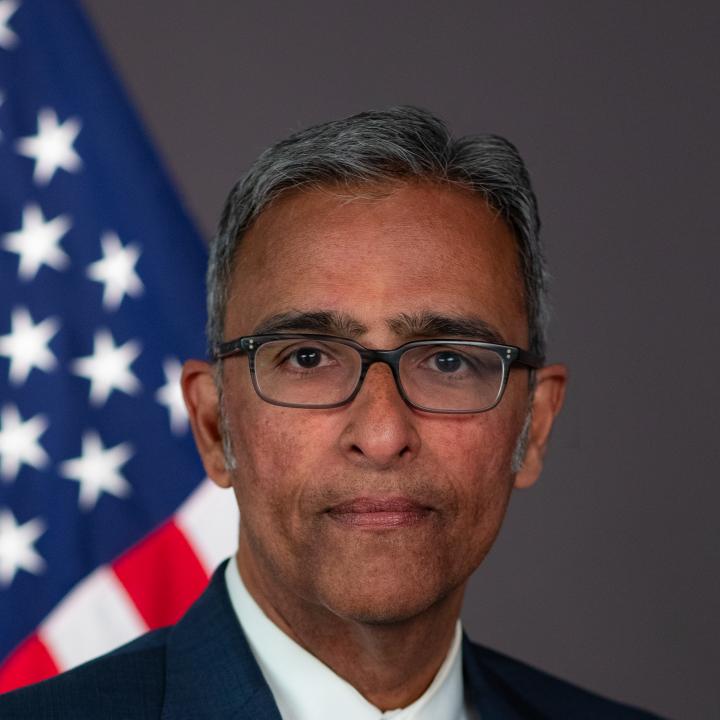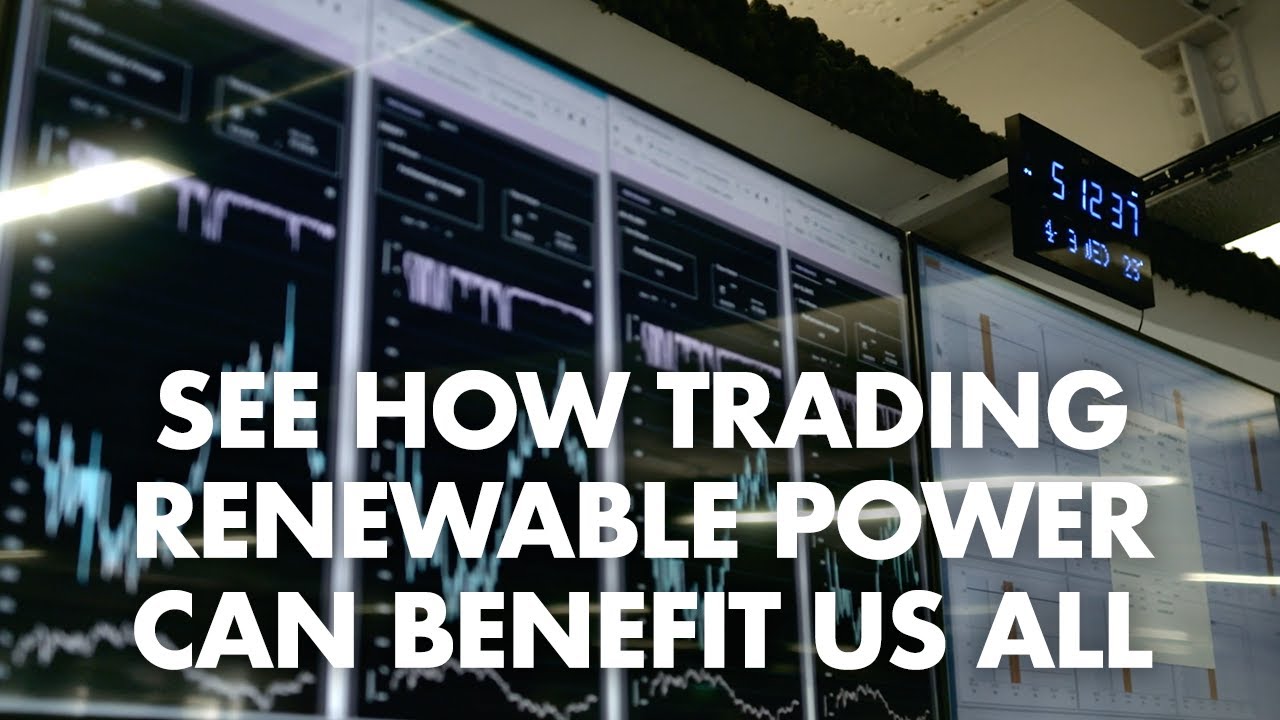
Nations rally behind renewables at COP28 climate talks
By Talek Harris, Nick Perry and Laurent Thomet
Dubai (AFP) Dec 2, 2023
Nearly 120 nations pledged to triple the world’s renewable energy within seven years at UN climate talks Saturday as the United States pushed to crank up nuclear capacity and slash methane emissions.
With smoggy skies in Dubai highlighting the challenges facing the world, leaders at the COP28 conference threw their support behind voluntary pledges aimed at ramping up alternatives to fossil fuels.
A massive deployment of solar, wind, hydroelectric and other renewables is crucial to efforts to replace planet-heating coal, oil and gas and achieve net-zero carbon emissions by 2050.
– Fossil fuel fight –
But COP28 negotiators face far tougher talks on the fate of fossil fuels over the next two weeks.
“Everyone stuck to their traditional positions,” said one who spoke on condition of anonymity.
But on clean energy, more than half of all nations signed up to a commitment to triple global renewable capacity and double energy efficiency by 2030, the COP28’s Emirati president said.
However, major oil producers including Saudi Arabia, Russia and Iran did not join, nor is top consumer China on the list.
“I do need more, and I’m kindly requesting all parties to come on board as soon as possible please,” COP28 president Sultan Al Jaber told delegates.
Clean power advocates welcomed the commitment but said it must be accompanied by the phaseout of dirtier forms of energy.
“The future will be powered by solar and wind, but it won’t happen fast enough unless governments regulate fossil fuels out of the way,” said Kaisa Kosonen, the head of Greenpeace’s COP28 delegation.
Jaber also announced a pledge by oil and gas companies responsible for 40 percent of global production — including Saudi giant Aramco and the UAE firm ADNOC he heads — to decarbonise their operations by 2050 and curb methane emissions.
But the pledges do not include the pollution when the fuels are burned by their customers, and were criticised for repackaging previous, non-binding commitments.
“This charter is proof that voluntary commitments from the oil and gas industry will never foster the level of ambition necessary to tackle the climate crisis,” said Melanie Robinson of the World Resources Institute, a nonprofit research body.
– ‘Destructive’ methane –
It comes after the US Environmental Protection Agency said it would tighten curbs on methane emissions from its oil and gas industry.
The new standards will phase in the elimination of routine flaring of natural gas produced by oil wells, and require comprehensive monitoring of methane leaks from wells and compression stations.
Methane is responsible for about one-third of the warming from greenhouse gases, second only to CO2.
“It is fugitive gas, and it just is out there doing damage,” said US climate envoy John Kerry, who met his Chinese counterpart Xie Zhenhua in Dubai Saturday to discuss how to curb the gas.
Their meeting followed an agreement with the US earlier this month where China for the first time agreed to include all greenhouse gases in its next national climate pledge for 2035.
Kerry also announced that Turkmenistan — which leaks more methane per unit of oil and gas than any other country — had signed up to an existing pledge to curb these harmful emissions.
The energy sector is the second-largest source of human-caused methane emissions.
Agriculture is the first, accounting for a quarter of methane emissions, mostly from livestock.
The US also joined a coalition of dozens of nations committed to phasing out coal power plants whose emissions cannot be captured.
– Nuclear option –
While COP28 rallied behind renewables, Washington led a call by more than 20 nations to triple nuclear energy capacity by 2050.
In a declaration, countries ranging from Britain to Ghana, Japan and several European nations said nuclear power had a “key role” in achieving carbon neutrality by mid-century.
But its use as a cleaner alternative to fossil fuels is highly controversial, with many environmental groups warning about safety risks and the disposal of nuclear waste.
Yet Kerry insisted “you can’t get to net zero 2050 without some nuclear”.
Environmental group 350.org said the 2011 Fukushima nuclear disaster in Japan highlighted the dangers.
“We don’t have time to waste on dangerous distractions like nuclear energy,” said its North America director Jeff Ordower.
More than 50 world leaders took the stage at COP28 for the second day in a row, with US Vice President Kamala Harris announcing a $3 billion contribution to a fund to help developing countries with energy transition and the effects of climate change — Washington’s first pledge to it since 2014.
Pledges made so far at the COP28 climate talks
Paris (AFP) Dec 2, 2023 -
The COP28 climate talks in Dubai have begun with a flurry of announcements promising action on global warming, led by its big-spending, oil-rich host the United Arab Emirates.
But observers have warned that the headline-grabbing pledges could distract from the real battles on fossil fuels and negotiating a formal COP28 text at the end of the two-week talks.
As pressure builds during what is expected to be the hottest year on record, here are some major funding pledges and declarations announced so far at COP28.
– Loss and damage –
The first day of the talks Thursday saw the launch of a landmark “loss and damage” fund to help vulnerable countries cope with the increasingly costly and damaging impacts of climate disasters.
The UAE and Germany pledged $100 million each, France $109 million, $50 million from Britain, $25 million from Denmark and $17.5 million from the United States, the world’s biggest historical polluter.
Campaigners said the US offering was woefully inadequate.
The total committed as of Saturday was some $656 million, according to a tally by the Natural Resources Defense Council, an environmental advocacy group.
That falls vastly short of the $100 billion a year that developing nations — which have historically been least responsible for greenhouse gas emissions — have said are needed to cover losses from natural disasters.
– Tripling renewables –
At least 116 countries committed Saturday to triple renewable energy capacity worldwide by 2030 and double the annual rate of energy efficiency improvements.
G20 nations, which account for nearly 80 percent of global greenhouse gas emissions, paved the way for a deal when they endorsed the renewable energy goal in September.
While supporters are expected to push for the pledge to be included in the final outcome of the talks, there are fears that the COP28 hosts were willing to shunt the more ambitious targets into voluntary deals.
– Fossil fuels –
The US committed to phasing out its existing unabated coal plants as it joined the Powering Past Coal Alliance (PPCA) Saturday.
Abatement generally means when the emissions from a power plant are captured before going into the atmosphere.
Global CO2 emissions from coal-fired power plants reached a new high in 2022 and the US has the world’s third-biggest capacity behind China and India.
Colombia became one of the largest fossil fuel producers to join the Fossil Fuel Non-Proliferation Treaty Initiative, a movement led by climate vulnerable island nations to end new development of coal, oil and gas.
Meanwhile, 50 oil and gas companies representing 40 percent of global production also pledged to decarbonise their operations by 2050. But the non-binding agreement does not include emissions when their fuels are burned by customers.
– Tripling nuclear –
More than 20 countries led by the US called Saturday for the tripling of world nuclear energy capacity by 2050. While nuclear generates almost no greenhouse gases, the Fukushima nuclear disaster in Japan in 2011 dealt it a severe blow.
But experts and activists point to the fact that new nuclear plants can take decades, while renewable energy is rising fast.
– Food and farming –
More than 130 countries have agreed to prioritise food and agriculture systems in their national climate plans.
The non-binding declaration was welcomed by observers, with food systems estimated to be responsible for roughly a third of human-made greenhouse gases.
But some criticised it for lacking concrete goals — and not mentioning fossil fuels or signalling any change to more sustainable diets.
– Healthy future? –
Over 120 countries signed up to a declaration to “place health at the heart of climate action”. It called for governments to step up action on climate-related health impacts like extreme heat, air pollution and infectious diseases.
Almost nine million people a year die from polluted air, while 189 million are exposed to extreme weather-related events.
The declaration notes “the benefits for health from deep, rapid, and sustained reductions in greenhouse gas emissions”, but makes no direct reference to the fossil fuels responsible for most human-caused pollution. COP28’s themed day on health is Sunday.
– UAE climate investment fund –
The UAE said it is putting $30 billion into a new private climate investment fund.
The oil-rich COP28 host said that the fund, called Alterra, would partly try to focus on climate projects in the developing world, and hoped to stimulate investments totalling $250 billion by 2030.
Related Links







